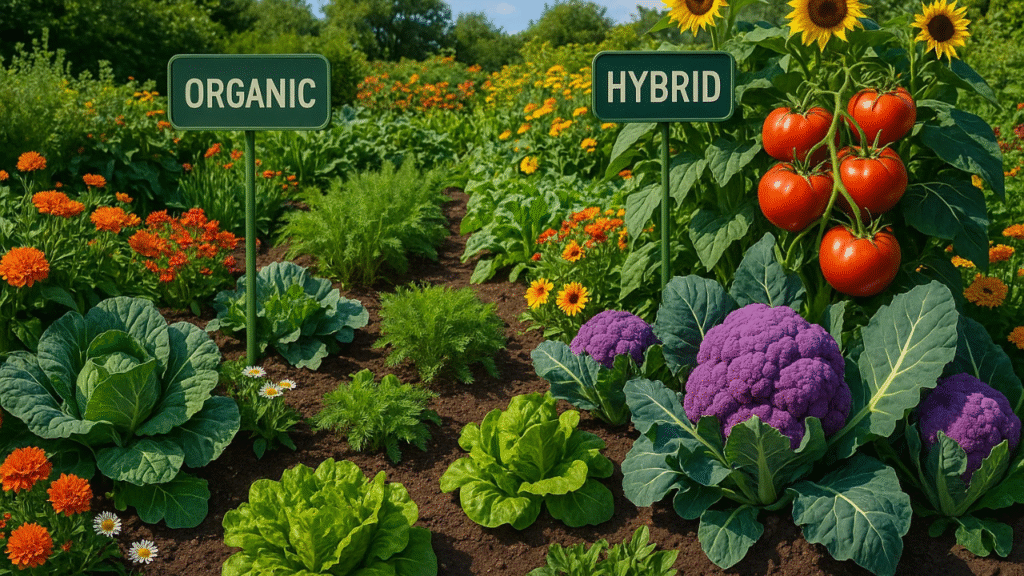
Organic vs. Hybrid Seeds: Pros and Cons Every Gardener Should Know
Choosing the right seeds can make or break your garden. Whether you’re growing juicy tomatoes, vibrant zinnias, or crisp cucumbers, the type of seed you plant shapes everything—from growth habits to flavor and resilience. That’s why understanding organic vs. hybrid seeds: pros and cons is essential for every gardener, whether you’re just starting out or have years of soil under your nails. This article will break down the key differences, highlight the strengths and weaknesses of each option, and help you make informed decisions that align with your gardening goals and values. 🌿
Table of Contents
Toggle🌱 What Are Organic Seeds? 🌿
Organic seeds come from plants grown without synthetic chemicals, pesticides, or genetically modified organisms (GMOs). 🐞🌿 These seeds are produced using organic farming methods that support healthy soil, clean water, and safe pollinator practices. 🐝
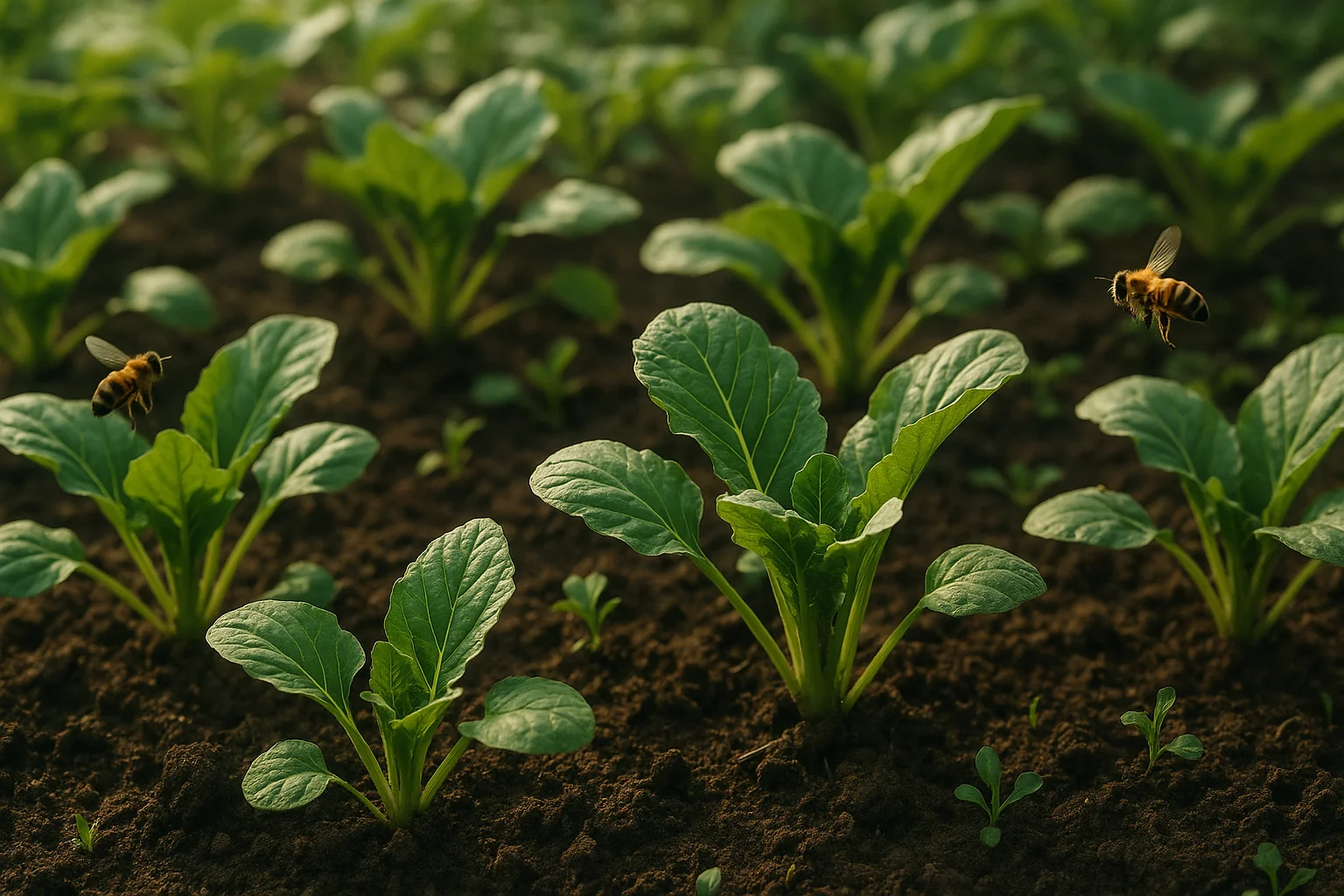
They’re often open-pollinated, meaning you can save seeds from your harvest and grow them again next season! ♻️💚
Because they’re adapted to natural conditions, organic seeds can be more resilient in organic gardens—but they may need more care and patience. 👩🌾✨
In short: Organic seeds are the go-to choice for eco-conscious gardeners who want to grow naturally. 🌎💚
🌼 What Are Hybrid Seeds? 🌻
Hybrid seeds are the result of crossbreeding two different plant varieties to combine their best traits. 🌻✨ For example, one parent might have great disease resistance, while the other has high yields. The goal? To create a plant that thrives in more challenging conditions and produces better results. 🌱💪
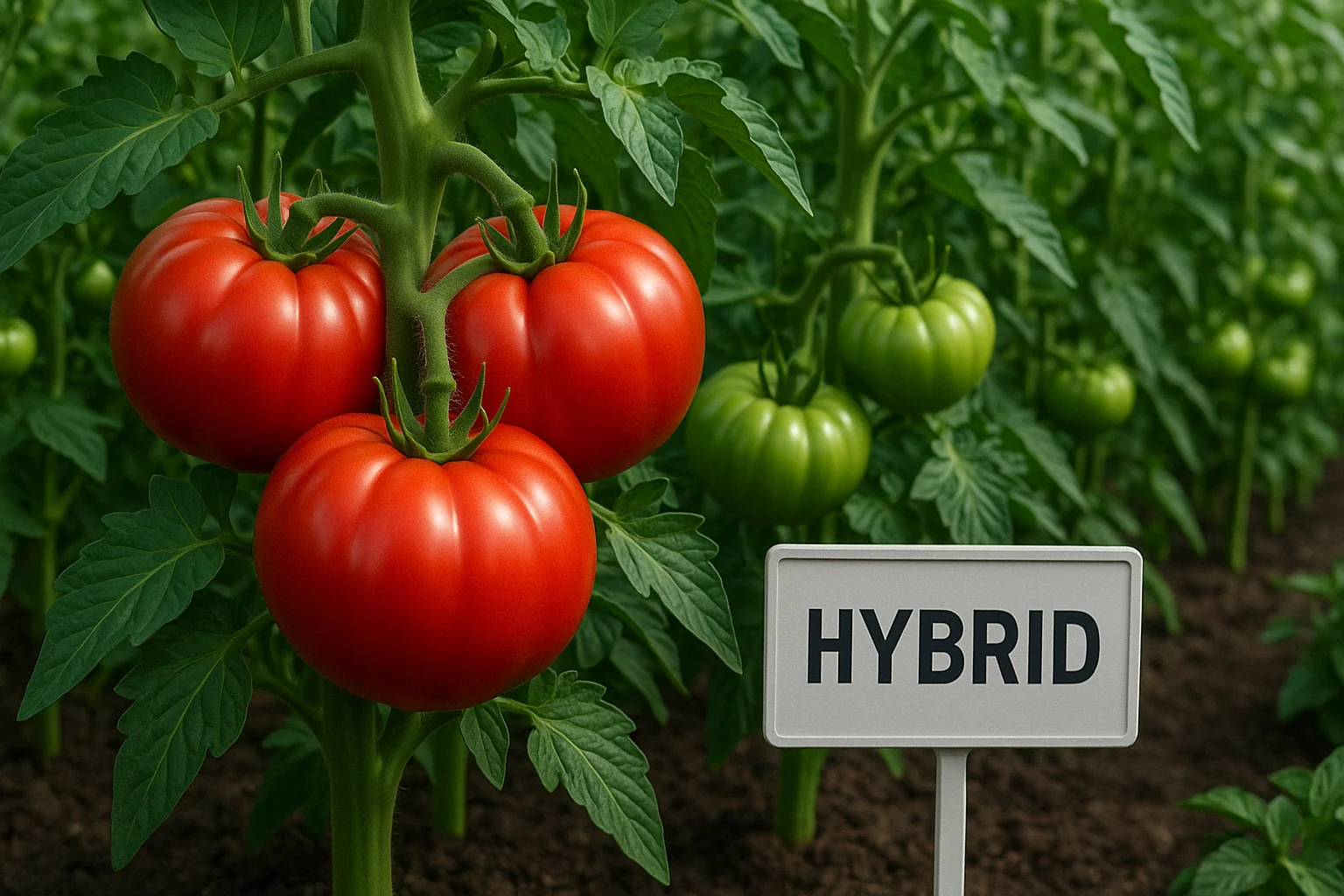
These seeds are typically bred for specific benefits like faster growth, bigger fruits, or better pest resistance. 🐞🍅 However, the seeds from hybrid plants won’t always produce the same traits if you try to save and replant them. 🤔❌
In short: Hybrid seeds are perfect for gardeners who want high-performance plants with predictable results. Understanding organic vs. hybrid seeds: pros and cons helps you choose the best type for your specific gardening goals.
🌱 Pros of Organic Seeds 🍅
Organic seeds offer many benefits for gardeners who prioritize sustainability and natural growth. Here are some key advantages:
- No Chemicals or Pesticides 🚫🧴: Organic seeds come from plants grown without harmful chemicals, making them a healthier choice for you, your garden, and the environment.
• Better Flavor and Nutrition 🍅💚: Many gardeners swear by the superior taste and nutrition of organic produce. Because they’re grown in nutrient-rich soil, organic plants often offer more flavor-packed fruits and veggies.
• Environmentally Friendly 🌍🌿: Choosing organic means supporting eco-friendly practices, such as soil health, water conservation, and the protection of pollinators like bees.
• Save Your Seeds ♻️🌾: You can save and plant seeds from your organic crops year after year, which is great for creating a self-sustaining garden and reducing costs.
• Resilient and Adapted 💪🌸: Organic seeds are often adapted to your local environment, meaning they might be more resistant to pests and diseases without the need for synthetic chemicals.
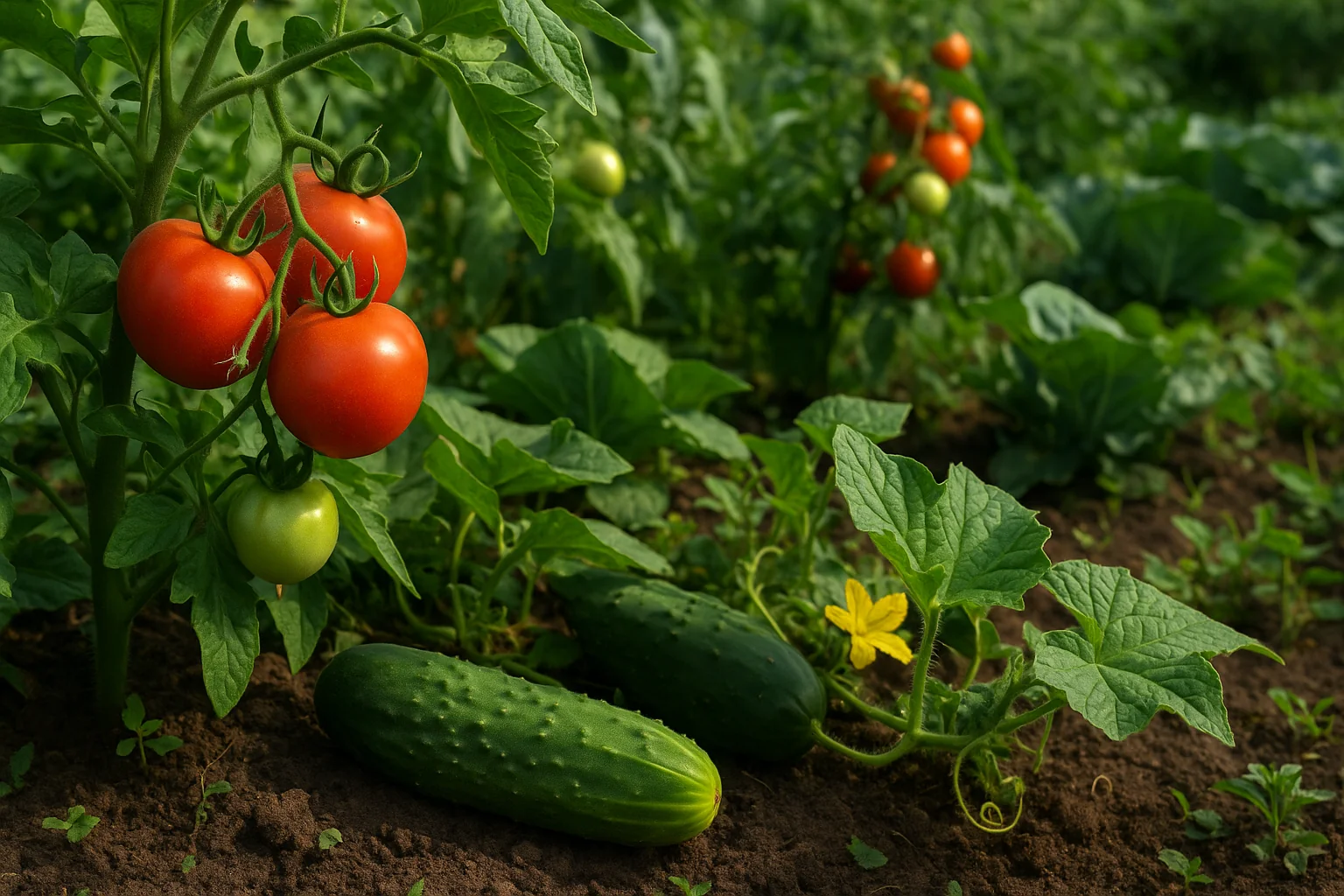
In short: Organic seeds are the go-to choice for eco-conscious gardeners who want to grow healthy, flavorful crops and help the planet! 🌿🍽️
⚠️🌱 Cons of Organic Seeds
While organic seeds have many benefits, there are a few downsides to consider:
- Lower Yields 📉🍅: Organic plants might not produce as much as hybrid varieties, which can be a challenge if you’re looking for large harvests.
• Vulnerability to Pests and Diseases 🐛🌾: Without synthetic pesticides, organic plants can be more susceptible to pests and diseases, requiring extra care and attention.
• Higher Cost 💰💚: Organic seeds often cost more than conventional or hybrid seeds due to the methods used to grow and certify them.
• Harder to Find 🛒❌: Depending on where you live, finding a variety of organic seeds can be trickier, especially for more exotic plants.
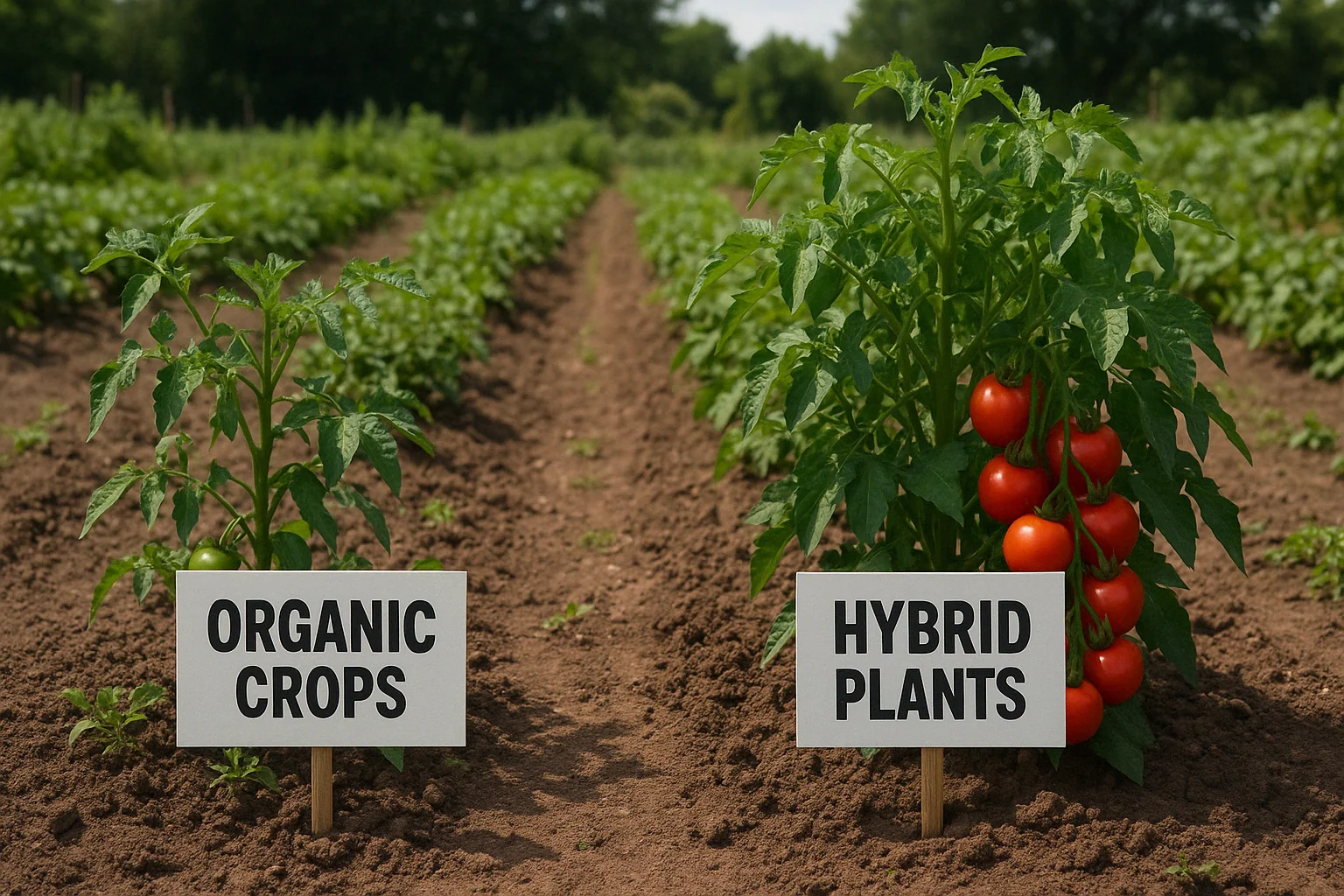
In short: Organic seeds are perfect for eco-conscious gardeners, but they may require more effort and investment to grow successfully. 🌱✨
🌟 Pros of Hybrid Seeds 🌾
Hybrid seeds offer several key advantages that make them a popular choice among gardeners looking for high-performance plants:
- Higher Yields 🌾: Hybrid plants often produce more fruit or flowers, making them ideal for gardeners seeking abundance and quicker results. 🍅
- Disease & Pest Resistance 🦠: Many hybrid varieties are bred for better resistance to pests and diseases, reducing the need for chemical treatments. 🐞🌱
- Faster Growth ⏱️: Hybrid plants typically grow faster, which can be perfect for gardeners with limited time or short growing seasons. 🌞
- Uniformity 🎯: Hybrids tend to be more consistent in terms of size, color, and harvest time, making them ideal for commercial growers or those who love neat gardens. 🌸
- Adaptability 🌍: Hybrid seeds are often bred to perform well in a variety of climates, making them a great choice for gardeners in challenging weather conditions.
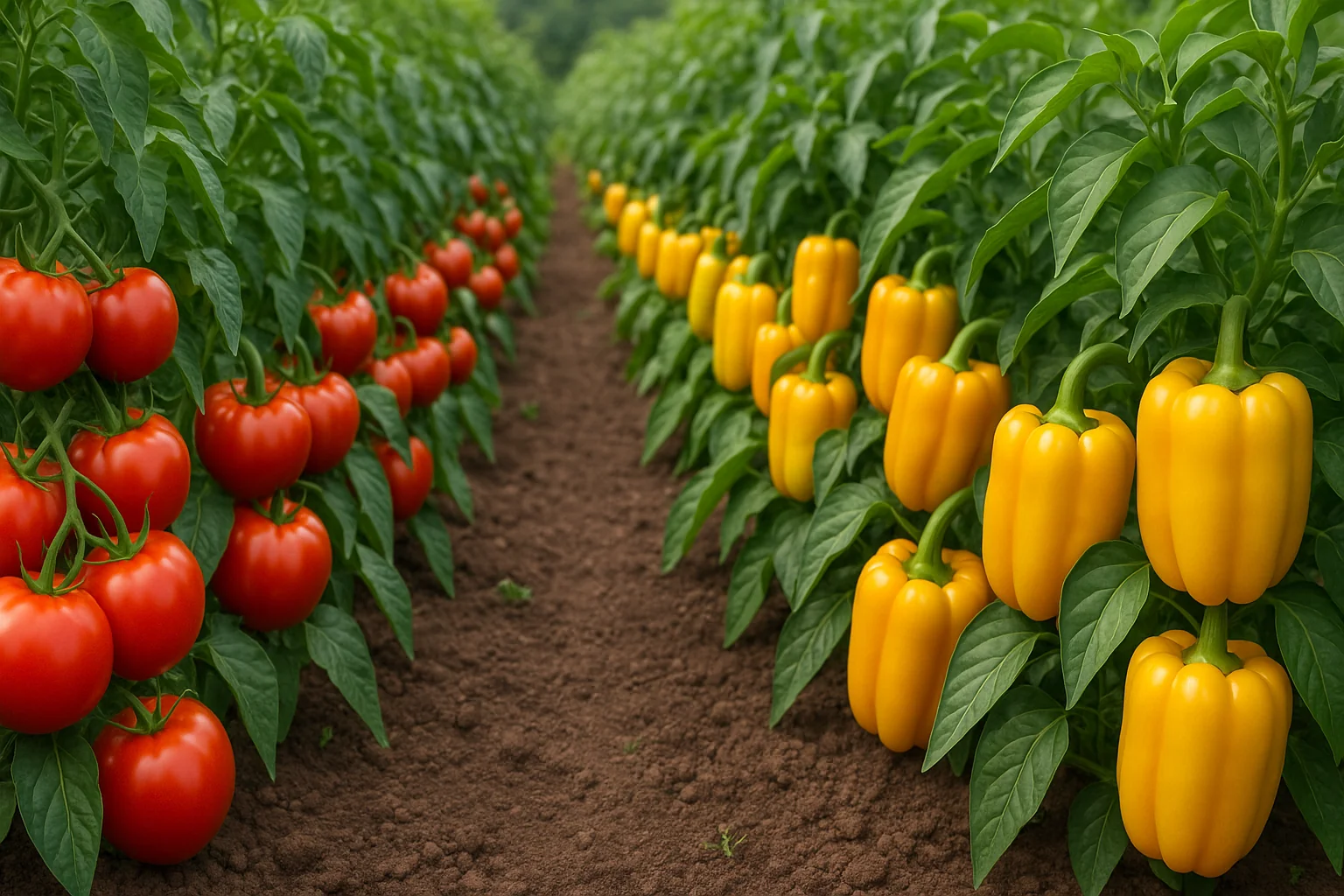
In short: Hybrid seeds are great for gardeners who want dependable, high-yielding plants with less hassle. 🌟💪
⚠️🌱 Cons of Hybrid Seeds
While hybrid seeds come with many benefits, they also have a few drawbacks:
- No Seed Saving ❌🌱: You can’t reliably save seeds from hybrid plants for next season, as they won’t produce the same traits. 🔄
- Dependency on External Inputs 💧: Hybrid plants often require specific care, such as fertilizers or pesticides, to thrive, which may not align with organic gardening principles. 🌿
- Higher Cost 💸: Hybrid seeds can be more expensive than organic or open-pollinated seeds, especially if you need to buy them every season. 🛒
- Limited Genetic Diversity 🌍: Since hybrids are bred for specific traits, they may lack the genetic diversity that organic or heirloom plants offer, which can make them more vulnerable to sudden environmental changes. 🌪️
- May Not Be Ideal for Organic Gardens 🌱❌: Hybrid seeds are typically not eligible for organic certification, so they may not be suitable for those committed to organic gardening. 🧑🌾
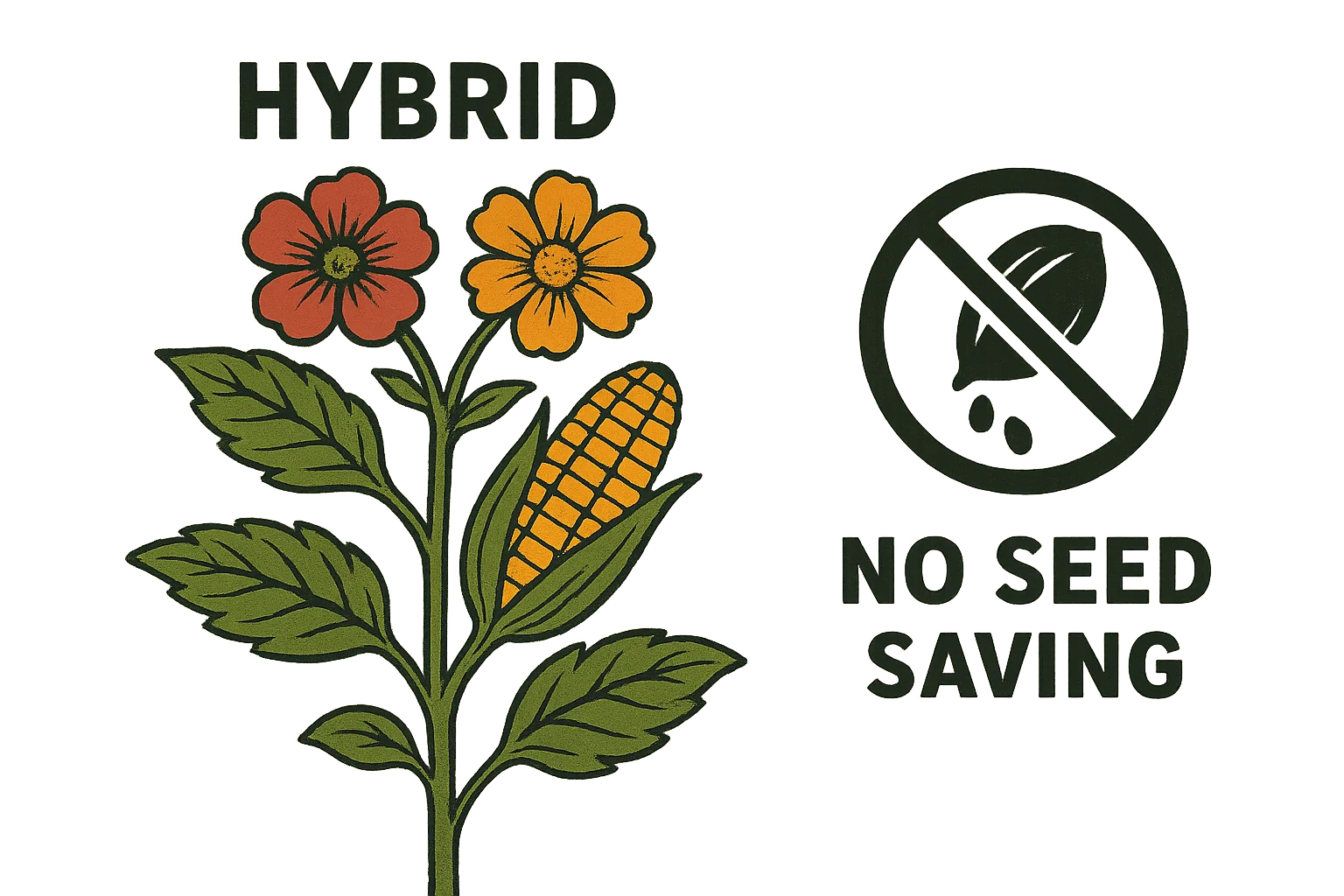
In short: Hybrid seeds offer great benefits but come with some limitations that may not suit every gardener’s needs. 🌟
🤔🌱 Which Type of Seed Is Right for You? 🌿
Choosing between organic and hybrid seeds depends on your gardening goals, values, and needs. Here are some questions to help you decide:
- Do you want to grow organically? 🌍
If you prioritize sustainability and natural methods, organic seeds are your best bet. They align with eco-friendly practices and allow you to save seeds for future seasons. - Is high yield a priority? 🌾
If you need abundant crops or flowers in a shorter time, hybrid seeds are ideal. They often deliver higher yields and are bred for faster growth. - Are you a beginner or an experienced gardener? 🌱
Hybrid seeds are easier to manage for beginners due to their resilience and disease resistance. However, if you’re an experienced gardener looking for a challenge and a more natural approach, organic seeds might be more fulfilling. - Do you care about saving seeds? ♻️
If you want to save and reuse your seeds, organic seeds (especially open-pollinated ones) will give you the freedom to do so. Hybrid seeds typically don’t offer this option. - Are you focused on flavor and nutrition? 🍅
If you’re after rich, flavorful produce, organic seeds often give you tastier, nutrient-packed harvests.
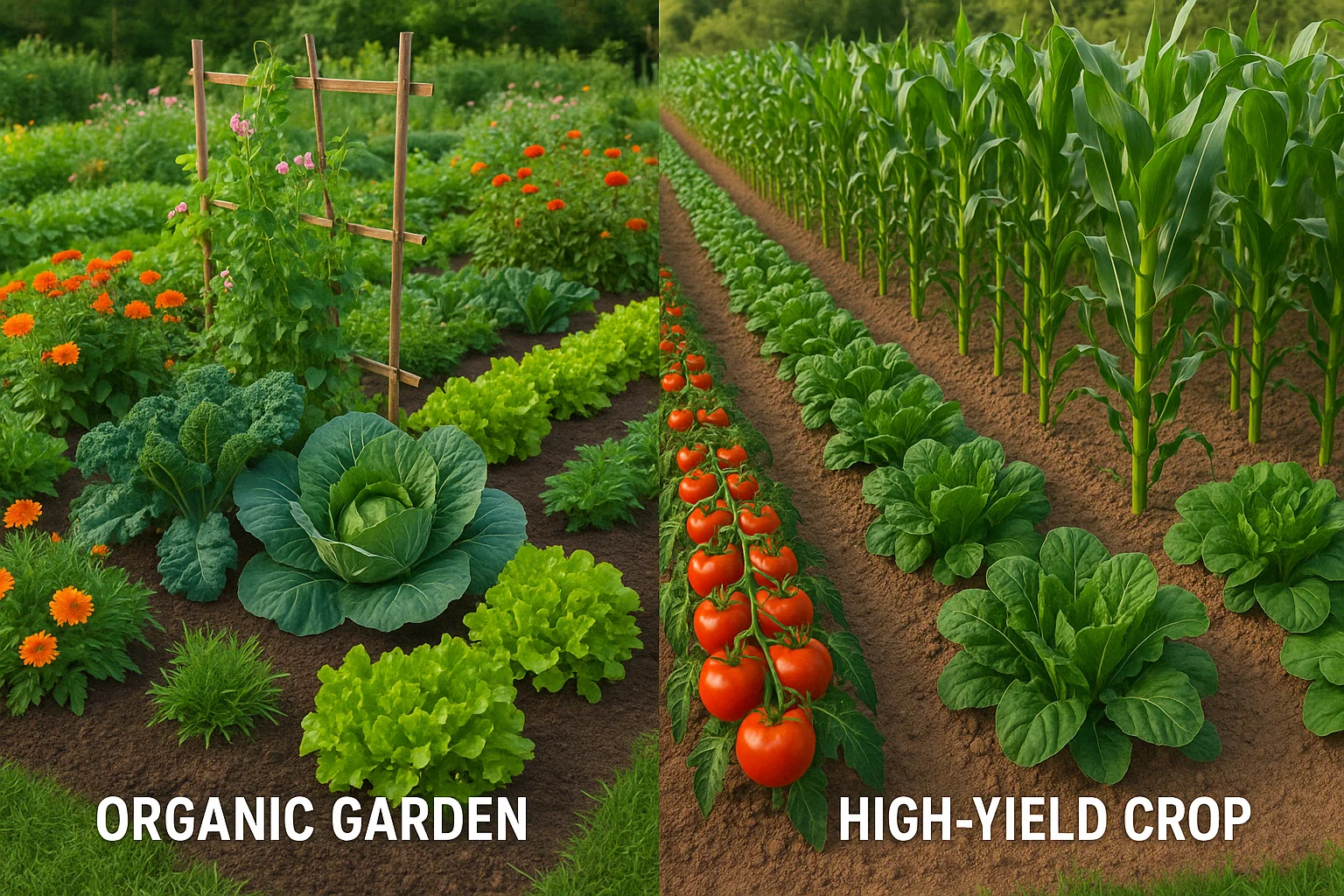
In short: There’s no one-size-fits-all answer. Choose the seeds that best fit your gardening goals, whether it’s for sustainability, high yields, or flavor. 🌿✨
🌻 Real-World Examples
To make things clearer, let’s explore how different gardeners might choose between organic and hybrid seeds:
🍓 1. Home Gardener Growing for Flavor
Sarah loves to grow tomatoes and herbs in her backyard. She values flavor and prefers organic gardening. She chooses organic seeds for her tomatoes and basil because she knows they’ll produce rich, tasty fruits and she can save seeds for future seasons. 🌱💚
🏙️ 2. Urban Gardener with Limited Space
Mark lives in a city and has only a small balcony for gardening. He needs plants that grow quickly and produce a lot in a short time. He picks hybrid seeds for his cucumbers and peppers to get fast-growing, high-yielding plants that require less care. 🍆🌞
🌾 3. Small-Scale Organic Farmer
Emily runs a small organic farm where she grows a variety of vegetables. She uses organic seeds for crops like lettuce, carrots, and tomatoes because they are suited to her organic farming methods. She enjoys saving seeds to maintain biodiversity and reduce costs. 🥕💧
🌤️ 4. Commercial Grower in a Challenging Climate
John operates a large commercial farm in a region with unpredictable weather. To ensure consistent harvests and withstand pests, he relies on hybrid seeds for crops like corn and beans. Hybrid varieties are more resilient and adapt well to his farm’s tough conditions. 🌽💪
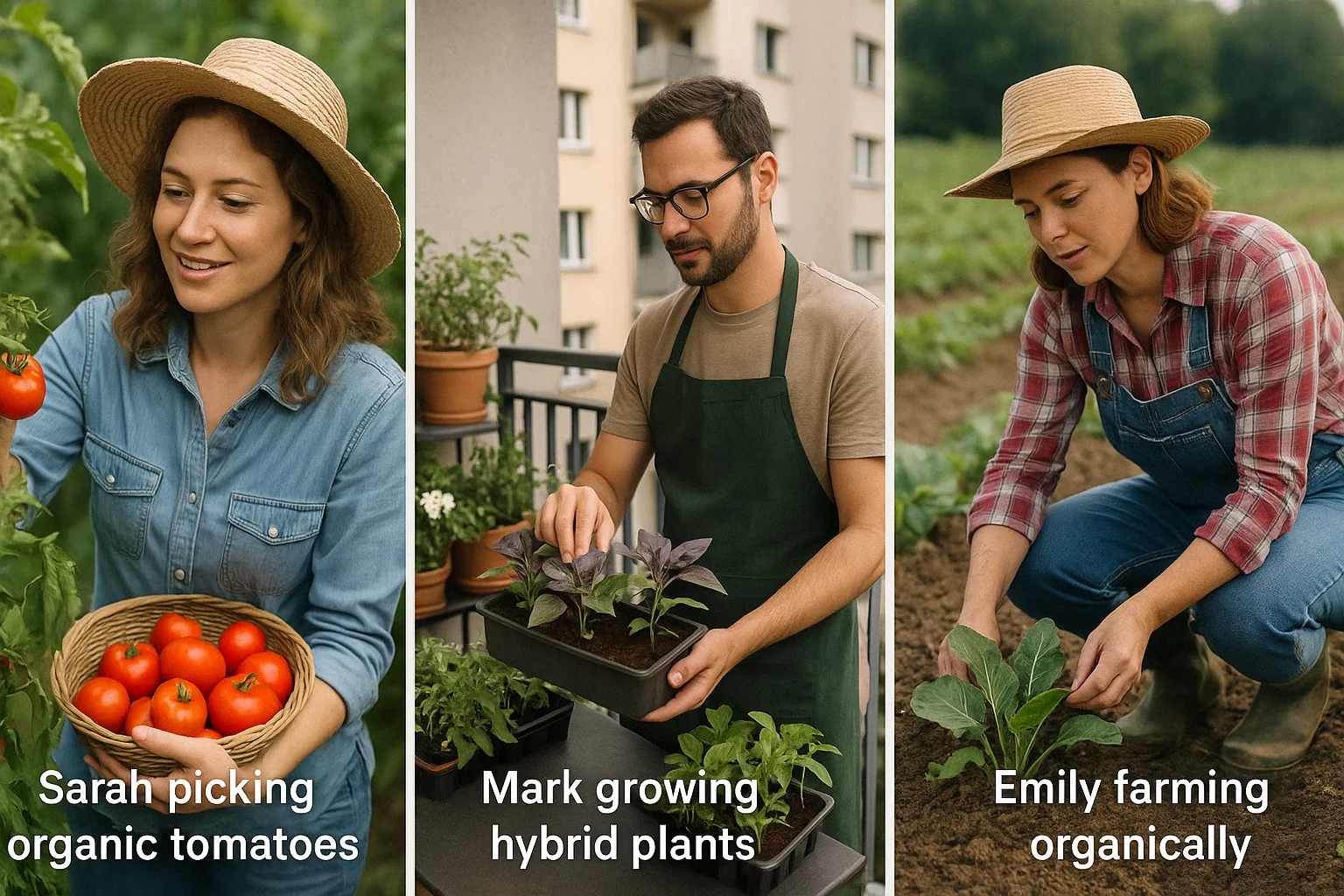
In short: Your choice between organic and hybrid seeds depends on your specific gardening situation, whether you’re after high yield, flavor, sustainability, or ease of care. 🌱✨
🛒🌱 Tips for Buying Quality Seeds
When it comes to buying seeds, the quality matters just as much as the type. Here are some key tips to ensure you get the best seeds for your garden:
🏆 1. Choose Trusted Brands
Buy from well-known and reputable seed companies that specialize in high-quality, non-GMO, and certified seeds. Research brands with good customer reviews and solid track records. 📝
✅ 2. Check for Certification
Look for organic certification if you’re choosing organic seeds. If you’re buying hybrid seeds, check if they come from reliable breeders known for quality and consistency. 🌿
📜 3. Read the Seed Packet
Always read the information on the seed packet. It should include details about planting time, care instructions, and expected yield. This will help you understand if the seeds are right for your garden. 🌱
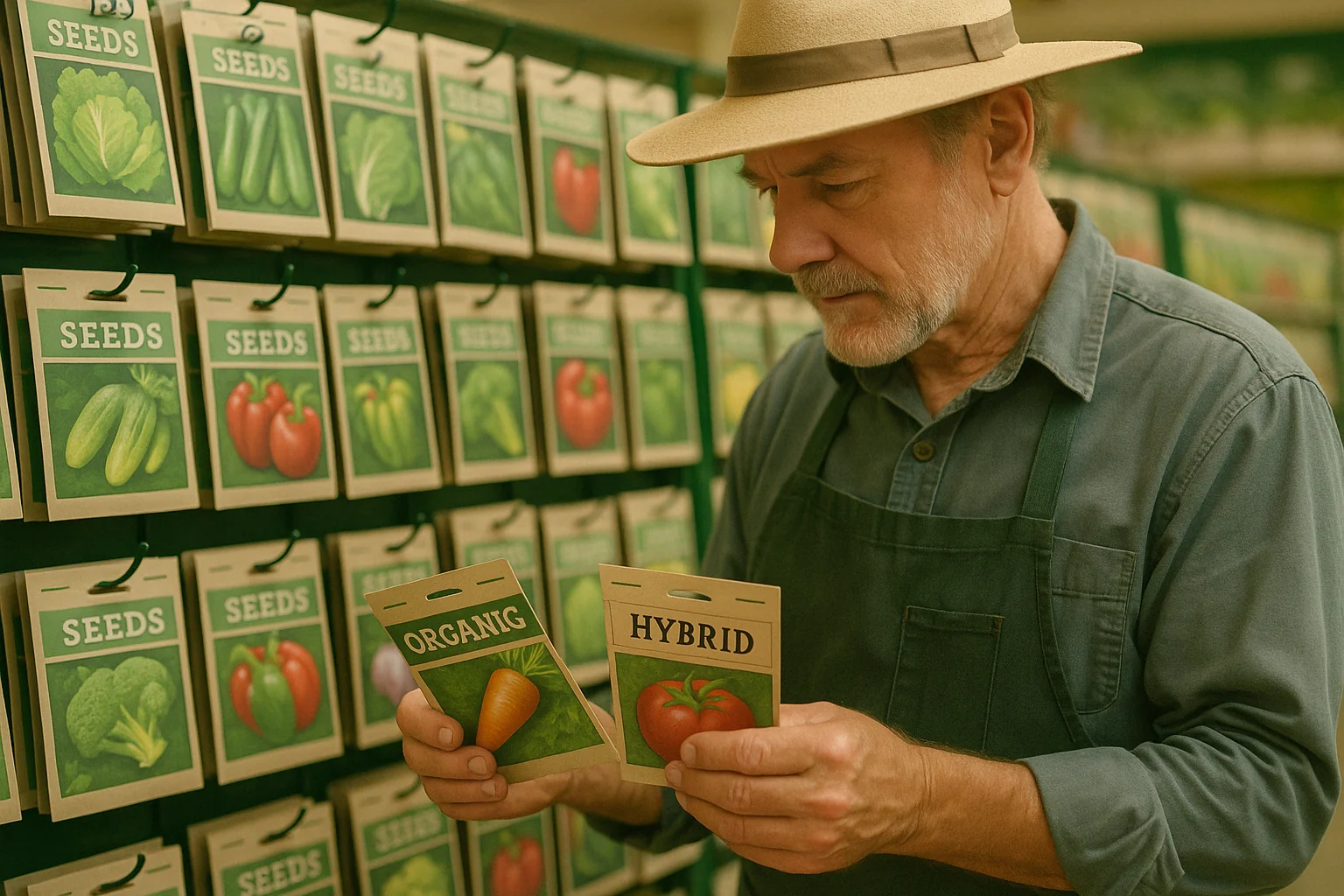
🌿 4. Look for Freshness
Fresh seeds have higher germination rates. Check the expiration date or the year the seeds were harvested to ensure they’re still viable. 🌾
🏡 5. Buy from Local Suppliers
Local nurseries or seed swaps are a great way to find seeds that are adapted to your specific climate and growing conditions. They often carry unique varieties that are hard to find elsewhere! 🌍
🌞 6. Consider Your Growing Conditions
Choose seeds that are suited for your climate, soil type, and growing season. If you live in a short-season area, hybrid seeds might be better for you. If you’re in a temperate zone, organic seeds can thrive. 🌦️
In short: Buying quality seeds from trusted sources ensures healthy plants and better harvests. Always check for certification, freshness, and suitability to your garden. 🌿✨
🌱🌟 Final Thought
Choosing between organic vs. hybrid seeds: pros and cons ultimately comes down to your gardening goals, values, and preferences. Organic seeds are perfect for eco-conscious gardeners who prioritize sustainability, soil health, and flavorful, nutrient-packed produce. On the other hand, hybrid seeds offer high yields, faster growth, and increased resilience, making them ideal for gardeners looking for dependable results.
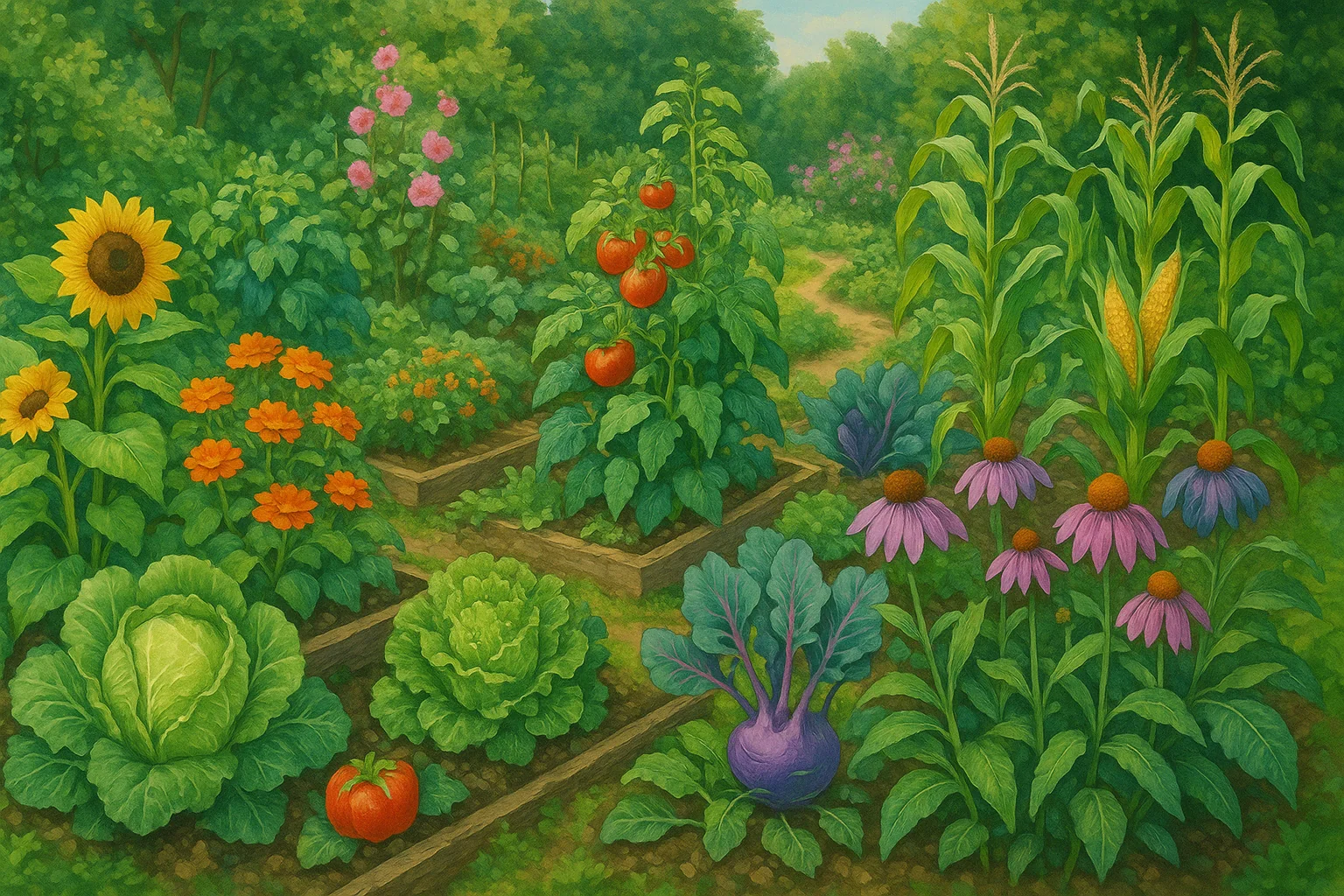
By understanding the strengths and weaknesses of each type, you can make informed decisions that align with your needs. Whether you choose organic for its environmental benefits or hybrid for its performance, both seed types have something valuable to offer. When considering organic vs. hybrid seeds: pros and cons, it’s important to weigh your priorities carefully to select the best option for your garden.
In short: No matter which seed you choose, the key is to enjoy the gardening process and nurture your plants with care. Happy planting! 🌻💚
Frequently Asked Questions (FAQ)
What is the difference between organic and hybrid seeds? 🌱
Organic seeds come from plants grown without synthetic chemicals, pesticides, or GMOs. They are often open-pollinated, meaning you can save and reuse the seeds. Hybrid seeds are crossbred plants designed for specific traits, like higher yields or pest resistance, but their seeds may not produce the same traits in the next generation.
Can I save seeds from hybrid plants for next season? ❌
No, hybrid seeds typically don’t produce the same traits in the next generation. Saving hybrid seeds may result in plants that are less predictable or don’t perform as well as the original plants.
Are organic seeds better for the environment? 🌍
Yes, organic seeds are grown using sustainable farming practices that prioritize soil health, reduce chemical use, and support biodiversity, making them better for the environment.
Do hybrid seeds yield more than organic seeds? 🌾
Yes, hybrid seeds often produce higher yields, faster growth, and better resistance to pests and diseases compared to organic seeds, which can be more variable in performance.
Are organic seeds more expensive than hybrid seeds? 💰
Yes, organic seeds are typically more expensive due to the cost of certification, organic farming practices, and the smaller scale of production compared to hybrid seeds.
Can I use hybrid seeds in an organic garden? 🌿
While you can grow hybrid seeds in an organic garden, they won’t be eligible for organic certification. Many organic gardeners prefer to stick with organic or open-pollinated seeds to maintain their garden’s organic integrity.
Do hybrid seeds need more care than organic seeds? 🛠️
Hybrid seeds are generally bred to be more resilient and can require less care in terms of pest and disease control. Organic seeds may require more attention to maintain healthy soil and manage pests without chemicals.
Which type of seed is better for beginners? 🌱
Hybrid seeds are often a better choice for beginners because they tend to be easier to grow, with more consistent results and resistance to pests and diseases. Organic seeds might require more experience and patience but are great for those committed to eco-friendly practices.
